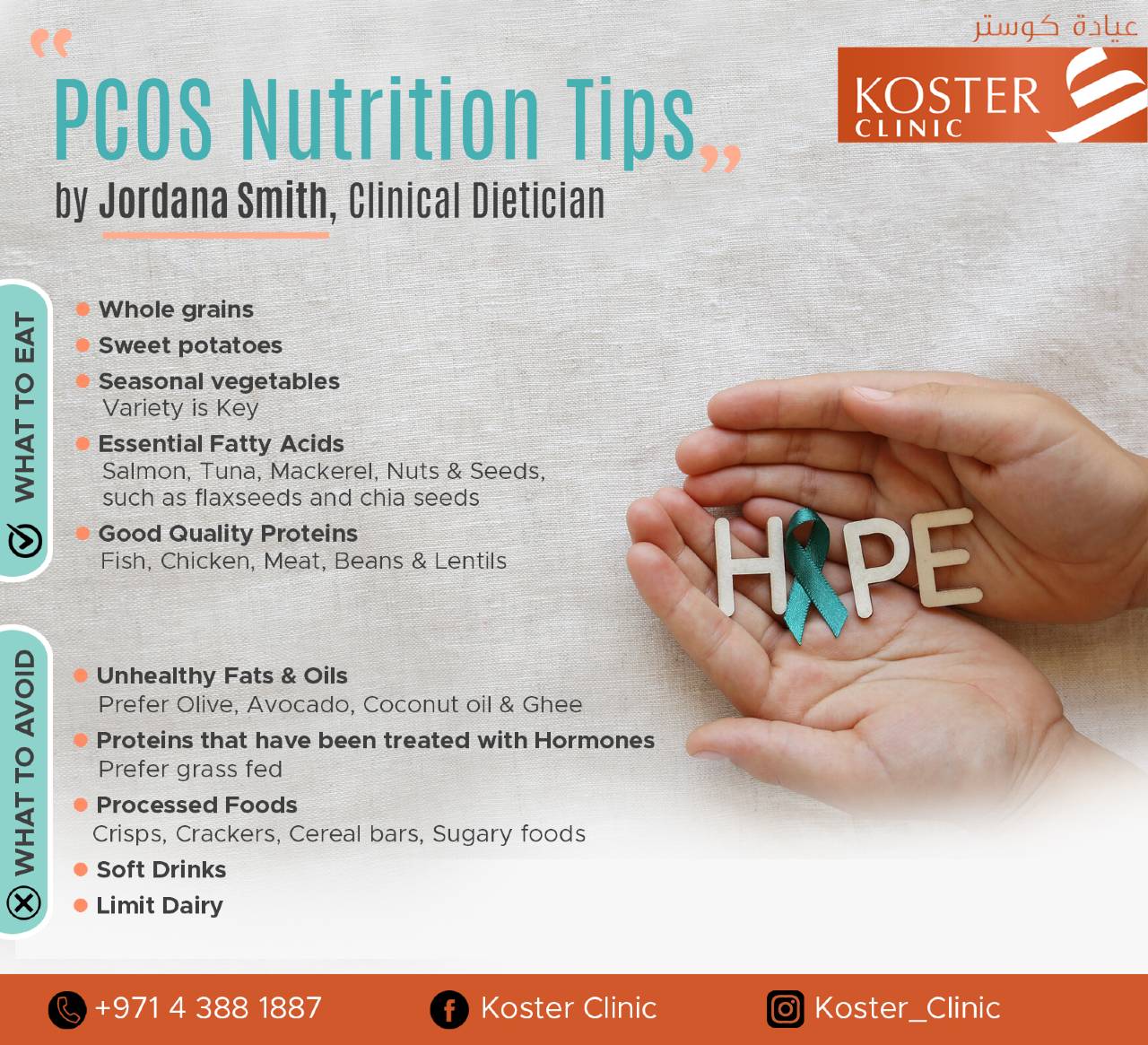What you Need to Know about Polycystic Ovary Syndrome
Information about PCOS by Dr. Amal Badi, one of the best gynecologists in Dubai.
PCOS is a lifelong, genetic condition affecting 1 in 10 women or around 10% of women and it may affect their overall health and appearance.
Causes:
1- Genetic. You can inherit the risk for PCOS and family members of women who have PCOS are also at higher risk for developing the same metabolic abnormalities.
2- Insulin resistance: It means that the glucose cannot enter the cells, and therefore your pancreas will produce more insulin, resulting in higher levels of insulin in the blood. This can have several negative effects including weight gain, difficulty losing weight and even affecting your ovaries, leading to lack of ovulation and higher levels of male hormones, called androgens
3- Higher levels of androgens interfere with or even cause anovulation (lack of normal ovulation)
4- Anovulation will cause irregular periods, absence of menstrual cycles, infertility and small cysts in the ovary
Symptoms:
- Most women will have irregular or late and heavy menstruations
- Difficulty to get pregnant
- Acne
- Increased hair growth mainly in the face (and other male distribution areas)
- Hair thinning with male pattern hair loss
- Weight gain or difficulty to lose weight, but there are lean women who have PCOS
Diagnosis:
There is no single test to diagnose PCOS. Medical history to know your symptoms and a proper medical examination plus ultrasound and some hormone level blood tests are used in combination to diagnose PCOS
How is it treated – Management
Lifestyle modifications are first line treatment and include the following:
A. Diet
B. Exercise
C. Weight loss
Medications:
Oral Contraceptive agents
Antiandrogens (Spironolactone, finasteride)
Hypoglycemic agents (Metformine)
Clomiphene citrate if you wish for pregnancy
You and your doctor will work on a treatment plan based on your symptoms and needs. The treatment will depend on what the symptom are, for example in case of infertility, you need to stimulate ovulations.
For irregular periods you can use contraceptive pills or other hormones to regulate it.
If you want to loose weight, diet and exercise can not be stressed enough but addition of metformin and hormonal therapy may help.
In all cases, hypoglycemic diet and being active are very important factors in controlling PCOS symptoms.
Long term effect:
- Insulin resistance can lead to diabetes and weight gain
- Anovulation can cause cessation of menstruation and increase in the thickness of the endometrium which increase risk of endometrial cancer
- Women with PCOS are at higher risk for high blood pressure, stiff and clogged arteries, high levels of heart-damaging LDL cholesterol and low levels of protective HDL
- Anxiety, distress, depression and eating disorders are more common in women with PCOS


